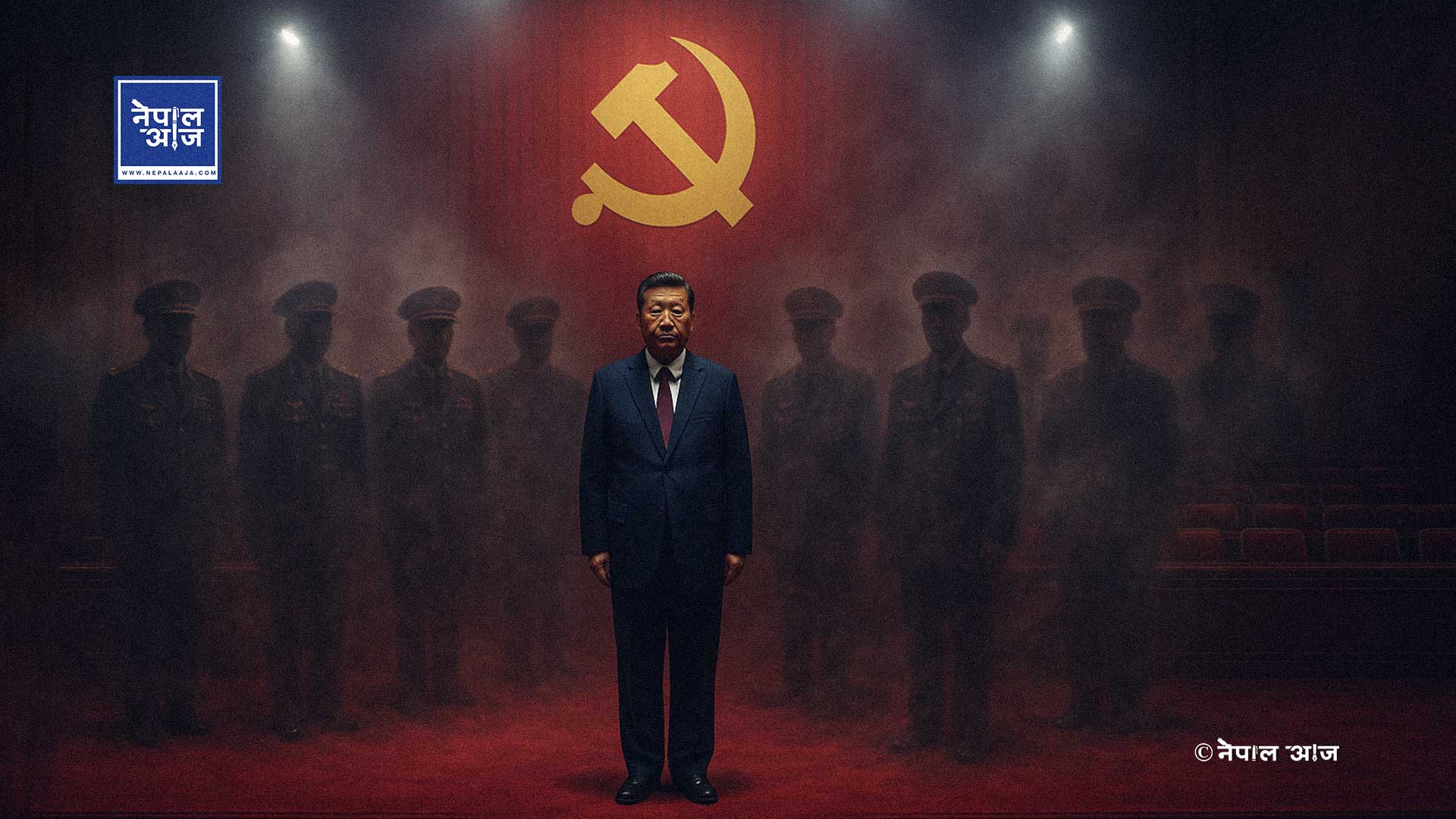China Ousts Top Generals Amid Deepening Power Shake-Up

As the Chinese Communist Party (CCP) convenes its Fourth Plenum this week, the political landscape in Beijing is undergoing a seismic shift. The expulsion of nine top generals just days before the meeting was not merely a disciplinary measureit appears to be the culmination of a broader and more systematic purge within the People’s Liberation Army (PLA). According to sources close to the CCP establishment, the so-called “Xi faction” within the military, formed after the 20th Party Congress, has been effectively dismantled.
The Ministry of Defence’s announcement on October 17 confirmed the removal of nine senior officers, including He Weidong, Miao Hua, and He Hongjun, for alleged “serious duty-related crimes” involving vast sums of money. These individuals were stripped of both their Party membership and military status. The PLA Daily followed with a scathing editorial accusing the generals of betraying the Party’s trust and undermining its control over the military apparatus.
However, political observers suggest that the purge is not solely about corruption. Internal briefings reportedly framed the dismissed officers as part of an “anti-Party clique,” hinting at ideological and political motivations behind the crackdown. This interpretation gains traction when considering that all nine expelled generals had been personally promoted by Xi Jinping, who serves as Chairman of the Central MilitaryCommission (CMC).
The scope of the purge appears to be expanding. U.S.-based commentator CaiShenkun, known for his insights into CCP power dynamics, revealed that four additional high-ranking officers are now under investigation. These include Xu Xueqiang, head of the Equipment Development Department; Xu Qiliang, deputy chief of staff of the Joint Staff Department; Xu Xisheng, political commissar of the Rocket Force; and Xiao Tianliang, president of the National Defence University. Moreover, 24 other generals, nine lieutenant generals and 15 major generalshave reportedly been dismissed, including ZhongShaojun, a close aide to Xi and political commissar of the National Defence University.
Cai also claimed that two senior CMC officialsVice Chairman He Weidong and Political Work Executive Deputy Director He Hongjunhave died under suspicious circumstances. While He Weidong allegedly succumbed to a heart attack, He Hongjun is said to have died by suicide. These reports remain unconfirmed by Chinese authorities, but they add to the growing sense of instability within the military hierarchy.
The timing of these revelations is particularly significant. The Fourth Plenum, which runs through this week, is expected to finalize key decisions regarding Party leadership and policy direction. Analysts believe the purge is a strategic move to consolidate power and eliminate dissent ahead of these deliberations. Yet, the sheer number of implicated generalsmany of whom were handpicked by Xiraises uncomfortable questions about the president’s judgment and the loyalty of his inner circle.
Wang Youqun, a former aide to Politburo Standing Committee member Wei Jianxing, noted that the Ministry of Defence’s statement conspicuously omitted the fact that all nine expelled officers held the highest rank in the PLA. This omission, he argued, was likely intended to shield Xi from public embarrassment, given that he personally approved their promotions between 2015 and 2024.
In total, 14 generals promoted by Xi since the 20th Party Congress in 2022 have now come under investigation for serious violations. This includes former Defence Ministers Li Shangfu and Wei Fenghe, as well as ex-Rocket Force Commander Li Yuchao. The pattern suggests a systemic failure in vetting and loyalty management within the upper echelons of the PLA.
The implications of this purge extend beyond internal Party politics. With China facing mounting external pressuresfrom trade tensions with the United States to strategic competition in the Indo-Pacificthe erosion of military cohesion could have far-reaching consequences. The removal of experienced commanders and the uncertainty surrounding their replacements may affect operational readiness and strategic planning, particularly in sensitive areas like Taiwan and the South China Sea.
Moreover, the purge underscores the fragility of Xi Jinping’s grip on power. While the president has long portrayed himself as a champion of anti-corruption and Party discipline, the unravelling of his military appointments reveals vulnerabilities in his leadership model. The concentration of power in a single figure, once seen as a source of stability, now appears to be a liability.
As the Fourth Plenum progresses, observers will be watching closely for signs of further shake-ups within the CCP. The outcome of this meeting could determine the trajectory of China’s political futureand whether Xi can weather the storm he helped create.
Sources:
https://www.msn.com/en-us/news/other/xi-jinping-getting-lonely-at-the-top-after-china-s-new-purge/ar-AA1OTxAZ
https://foreignpolicy.com/2025/10/21/china-ccp-military-purge-leaders-fourth-plenum/
https://www.firstpost.com/world/xi-becoming-more-powerful-his-purge-at-chinese-communist-party-plenum-intensifies-13943827.html
https://www.abc.net.au/news/2025-10-18/xi-inner-circle-major-shakeup-ccp-meeting-beijing/105885472




![From Kathmandu to the World: How Excel Students Are Winning Big [Admission Open]](https://www.nepalaaja.com/img/70194/medium/excel-college-info-eng-nep-2342.jpg)
